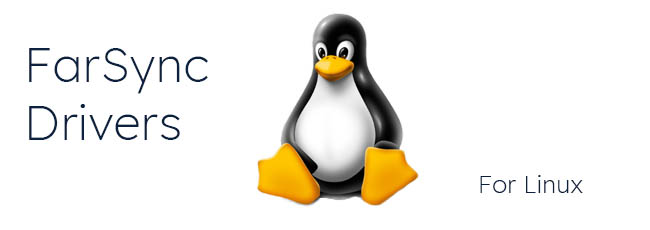Future features depreciation
To ensure we keep FarSite’s products up to date and relevant we regularly review and refine the maintained drivers. If some features are superseded or rarely used by end customers we sometimes decide to deprecate them.
The below four features will no longer be supported in the next major release (Version 5.0.0) of the FarSync Drivers for Linux.
If you require support for any of these features, please contact moc.etisraf@troppus to discuss this further.
WAN-mode: Up to, and including, Version 4.0.0 of the FarSync Drivers for Linux, two alternative modes have been supported: WAN and OEM. WAN mode provides support for the Linux host’s native IP stack to be connected to a peer node over a Wide Area Network serial connection, using link protocols such as PPP, Cisco HDLC, Frame Relay etc. OEM mode provides an API to enable generic support for user applications to directly utilise the local FarSync port(s) using a protocol-agnostic, block-based software interface. For a long while now, the vast majority of use cases have only required the use of OEM mode – therefore, future releases will focus purely on OEM mode, with WAN mode being deprecated as of Version 4.0.0.
32-bit support: 32-bit deployments are extremely rare now. Therefore, from Version 5.0.0 onward, the drivers will be focused specifically on 64-bit installations.
Network script support: For a number of years now there has been a move away from managing the Linux host network configuration via legacy network scripts e.g. /etc/sysconfig/network-scripts to Network Manager in RHEL, /etc/network/interfaces to netplan in Ubuntu etc.. Therefore, depending on the exact distribution, this legacy support has been deprecated or, in some cases, already removed (e.g. RHEL 9). As far as the FarSync Drivers for Linux are concerned, network scripts have mainly been used as part of its WAN mode support. Therefore, from Version 5.0.0 onwards, any network script-related support will be revised accordingly.
RAW API mode: Up to, and including, Version 4.0.0 of the FarSync Drivers for Linux, two alternative API modes have been supported: Raw and Char. Using the Char API is much like writing an application for any character-based port. You open() the port, read() and write() data, and close() the port when processing is complete. There are a number of ioctls that can be used to configure the port or set it into a specific mode of operation or gather status or statistics. For a long while now, the alternative sockets-based Raw API has not been recommended for new developments since the Char API is far superior and offers a superset of functionality compared with the Raw API. The Raw API therefore has been retained for compatibility with previously developed applications only. Thus Version 5.0.0 of the drivers will focus purely on the Char API, with the Raw API being deprecated as of Version 4.0.0.
Please note that FarSite can still offer maintenance and support for the Version 4.x.x drivers for existing customers.

